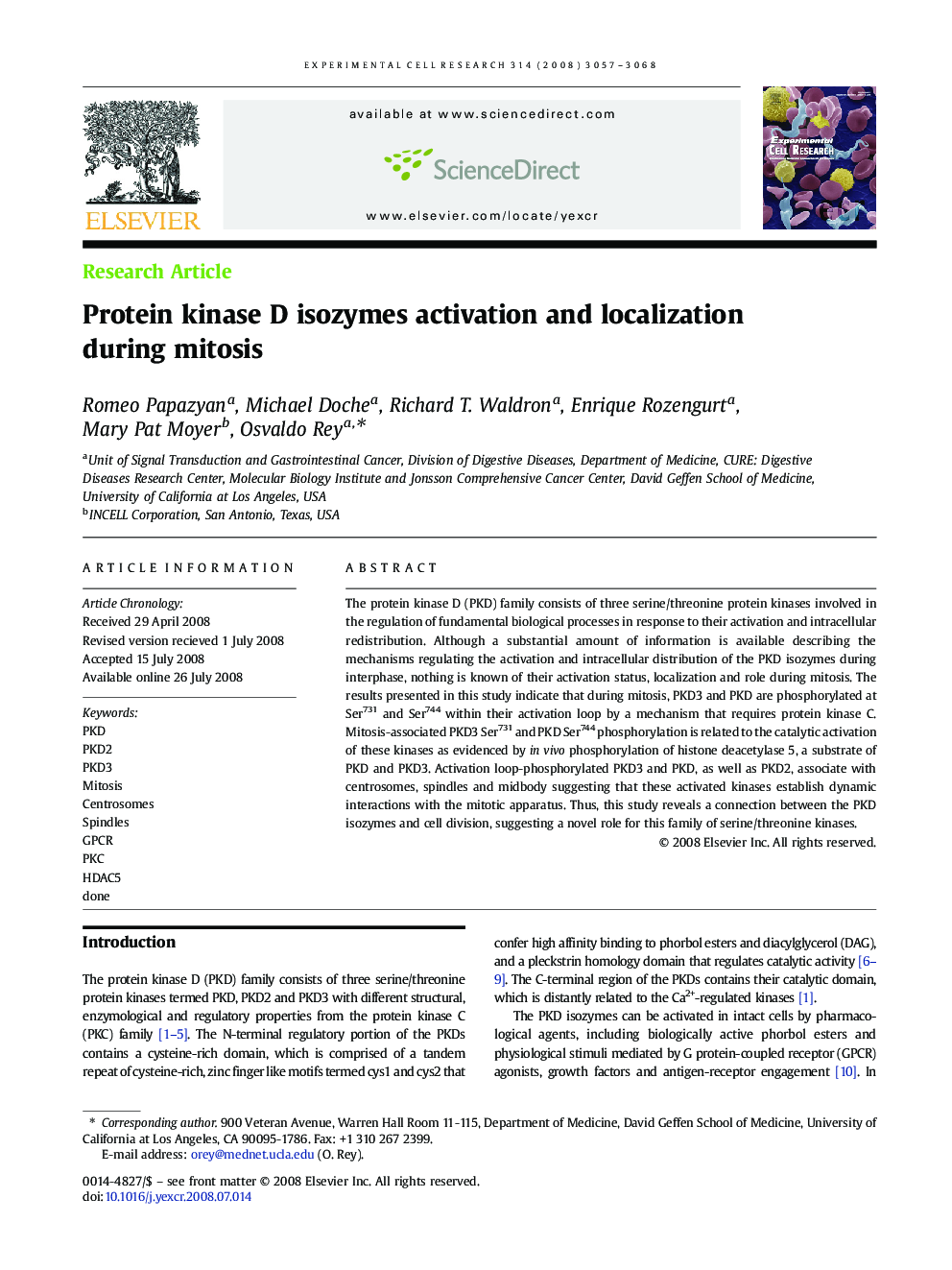| Article ID | Journal | Published Year | Pages | File Type |
|---|---|---|---|---|
| 10904702 | Experimental Cell Research | 2008 | 12 Pages |
Abstract
The protein kinase D (PKD) family consists of three serine/threonine protein kinases involved in the regulation of fundamental biological processes in response to their activation and intracellular redistribution. Although a substantial amount of information is available describing the mechanisms regulating the activation and intracellular distribution of the PKD isozymes during interphase, nothing is known of their activation status, localization and role during mitosis. The results presented in this study indicate that during mitosis, PKD3 and PKD are phosphorylated at Ser731 and Ser744 within their activation loop by a mechanism that requires protein kinase C. Mitosis-associated PKD3 Ser731 and PKD Ser744 phosphorylation is related to the catalytic activation of these kinases as evidenced by in vivo phosphorylation of histone deacetylase 5, a substrate of PKD and PKD3. Activation loop-phosphorylated PKD3 and PKD, as well as PKD2, associate with centrosomes, spindles and midbody suggesting that these activated kinases establish dynamic interactions with the mitotic apparatus. Thus, this study reveals a connection between the PKD isozymes and cell division, suggesting a novel role for this family of serine/threonine kinases.
Related Topics
Life Sciences
Biochemistry, Genetics and Molecular Biology
Cancer Research
Authors
Romeo Papazyan, Michael Doche, Richard T. Waldron, Enrique Rozengurt, Mary Pat Moyer, Osvaldo Rey,
